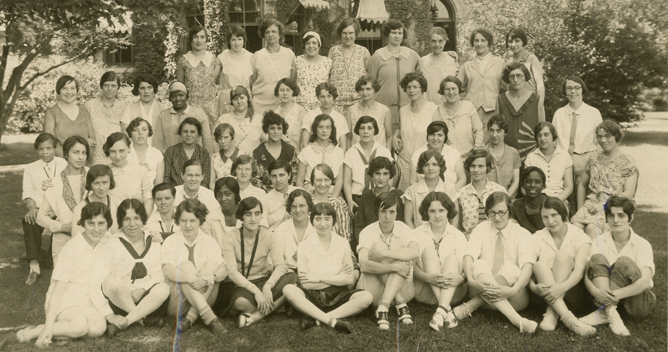Speaker Bio
Linda Hocking holds a B.A. in political science and history from Marist College and an M.S. in library and information science from the University of Illinois. She has been Curator of Library & Archival Collections at the LHS since November 2002. In 2005, the Society of American Archivists awarded the Colonial Dames Scholarship to the January session of the Modern Archives Institute to Hocking. In September of 2005, Hocking was admitted to the Academy of Certified Archivists. She serves on the Connecticut State Historical Records Advisory Board and as Newsletter Editor for the Academy of Certified Archivists.
Jessica Jenkins is the Curator of Collections at the Litchfield Historical Society. She graduated with a Bachelor of Arts in History from Quincy University, and obtained her Master of Arts in Public History from Central Connecticut State University. Outside of her role at the Litchfield Historical Society Ms. Jenkins is also involved with the greater heritage community in Connecticut and servers on the board of the Connecticut League of History Organizations. Her article Marching Shoulder to Shoulder: New Life in the Connecticut Woman Suffrage Movement was published last year in the journal Connecticut History.
Abstract
The Ledger, an award‐winning interactive database, contains biographical information about the students who attended Sarah Pierce's Litchfield Female Academy and Tapping Reeve's Litchfield Law School. Starting from antiquarian sources and subsequent print research from the 1980s and 1990s, the staff of the Litchfield Historical Society undertook manual data‐entry for thousands of students, their parents, spouses, instructors, and various prominent figures from within the Litchfield community. The pages for each individual include biographical data, images and descriptions of portraits, student artwork, and personal artifacts owned by students as well as links to collections of personal or family papers pertaining to specific students. The Society's curators will discuss the challenges to creating this resource, from database design to informational content including how to keep progressing when grant funding has ended; attempting to reunite geographically disparate resources; and discovering whether the project meets the needs of its users. While there is much about The Ledger that has yet to be expanded, and subsequent use has revealed areas for improvement, it represents a starting point for examining a variety of social, political, and religious movements in the early national period and a prime example of how digital resources can shed light on the history of women.
The Ledger
The Ledger, an award‐winning interactive database, contains biographical information about the students who attended Sarah Pierce's Litchfield Female Academy and Tapping Reeve's Litchfield Law School. Starting from antiquarian sources and subsequent print research from the 1980s and 1990s, the staff of the Litchfield Historical Society undertook manual data‐entry for thousands of students, their parents, spouses, instructors, and various prominent figures from within the Litchfield community. The pages for each individual include biographical data, images and descriptions of portraits, student artwork, and personal artifacts owned by students as well as links to collections of personal or family papers pertaining to specific students. The Society's curators will discuss the challenges to creating this resource, from database design to informational content including how to keep progressing when grant funding has ended; attempting to reunite geographically disparate resources; and discovering whether the project meets the needs of its users. While there is much about The Ledger that has yet to be expanded, and subsequent use has revealed areas for improvement, it represents a starting point for examining a variety of social, political, and religious movements in the early national period and a prime example of how digital resources can shed light on the history of women.
